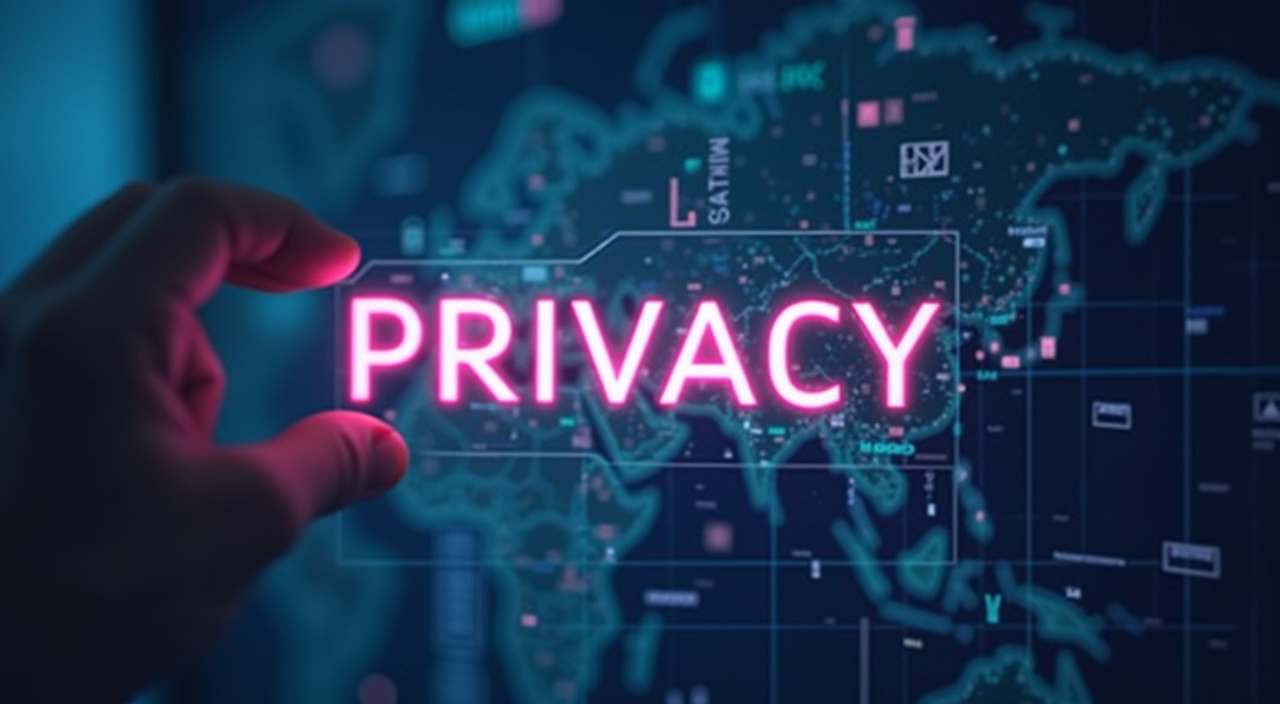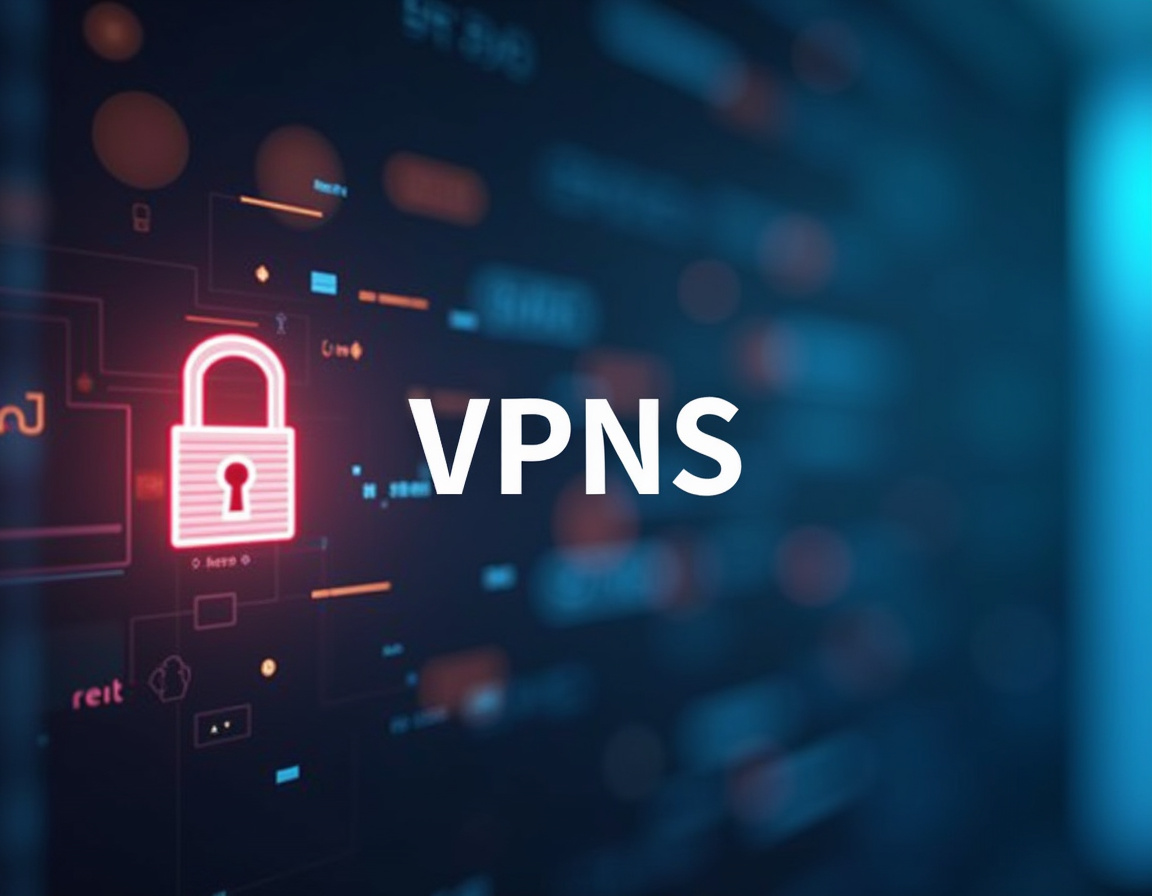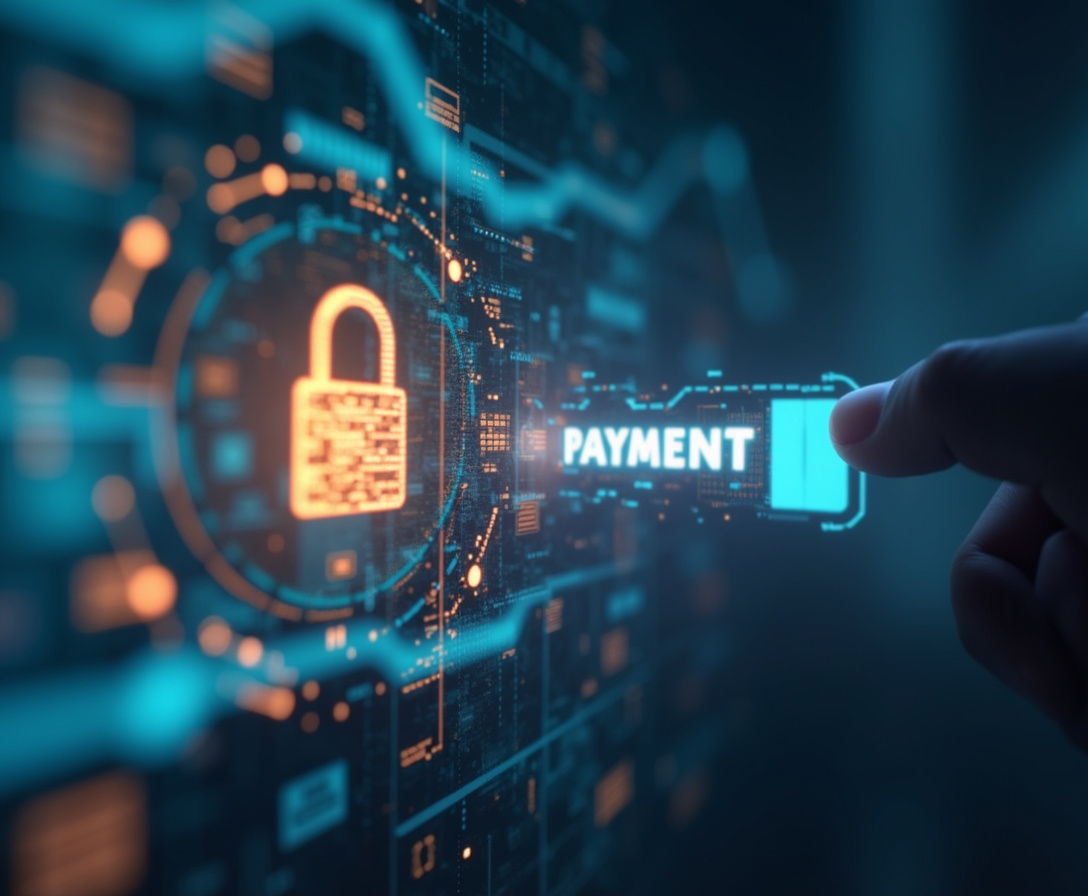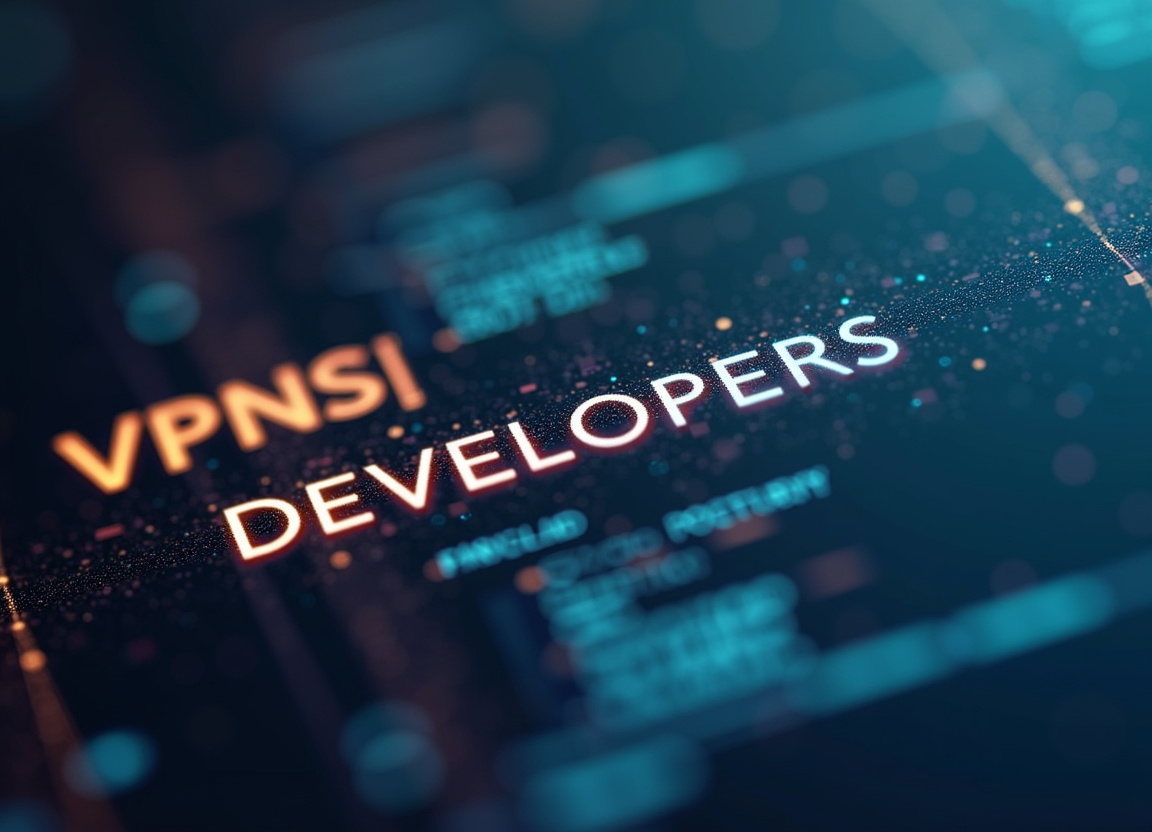VPNs for Mobile App Creators: Securing API Interactions

Table of Contents
mobile app VPN
In today's interconnected mobile world, application creators are tasked with maintaining the security of their apps and the data they handle. Mobile applications interact with external systems, using APIs (Application Programming Interfaces) to deliver functionality. However, relying on APIs introduces security risks like data breaches, unauthorized access, man-in-the-middle attacks, and denial-of-service vulnerabilities.
One of the most effective strategies is a Virtual Private Network (VPN): a technology that creates a secure, encrypted connection between the mobile app and backend servers. A acts as a shield, protecting data transmitted and enhancing security. This is crucial when the app interacts with third-party APIs, where security is outside the developer's control.
A VPN provides an additional layer of security, encrypting communications between the app and external services. Using VPNs is responsible, demonstrating a commitment to and complying with data privacy regulations. In an era of data breaches, app creators who prioritize security earn user trust and maintain a competitive edge.
A VPN strategy defends against cyber threats, protecting information and ensuring the mobile app ecosystem's integrity. Integrating a VPN makes development more secure, especially when developers work remotely or use public Wi-Fi to access resources or test APIs. The choice of VPN protocol and security implementation requires consideration, as protocols offer different security and performance levels.
OpenVPN and WireGuard are considered secure and reliable, while PPTP is outdated and vulnerable. The goal is to select a VPN solution that provides security for the app and its users. This requires understanding threats and evaluating VPN options.
By embracing VPNs, mobile app creators build a safer digital environment, fostering trust in a competitive market. As mobile app capabilities expand, VPNs as a security tool will only increase. Integrating a VPN into the mobile app development lifecycle can also present certain challenges.
One of the primary considerations is the impact on app performance. Encrypting and decrypting data can add overhead, potentially slowing down the app's response times. Developers must carefully balance security and performance, optimizing the VPN configuration to minimize any negative impact on the user experience.
Another challenge is the integration complexity. VPNs can be complex to configure and manage, requiring specialized knowledge and expertise. Developers may need to invest in training or hire experienced security professionals to ensure that the VPN is properly implemented and maintained.
Furthermore, it is essential to choose a VPN solution that is compatible with the mobile app platform and development environment. Different VPNs may have different integration requirements, and developers must ensure that the chosen VPN works seamlessly with their app. In addition to the technical challenges, there are also legal and regulatory considerations to be aware of.
The use of VPNs may be subject to certain legal restrictions in some countries, and developers must ensure that their app complies with all applicable laws and regulations. This may involve obtaining the necessary licenses or permits, or implementing specific security measures to protect user data. Despite these challenges, the benefits of using VPNs for mobile app security far outweigh the risks.
By taking the necessary precautions and investing in the right VPN solution, mobile app creators can significantly enhance the security of their apps and protect the privacy of their users. This can lead to increased trust and confidence, which can ultimately drive greater adoption and engagement. In the long run, a strong security posture is essential for success in the competitive mobile app market.
API security
The importance of cannot be overstated in the context of modern mobile app development. APIs are the conduits through which mobile apps interact with backend servers, databases, and other external services, transferring data and executing essential functionalities. Consequently, APIs are prime targets for malicious actors seeking to intercept sensitive information, inject malicious code, or disrupt service availability.
A VPN plays a critical role in securing these API interactions by creating an encrypted tunnel between the mobile app and the API endpoint. This encryption protects data in transit from eavesdropping and tampering, making it significantly more difficult for attackers to intercept or modify the information exchanged. Beyond encryption, VPNs also offer additional security benefits, such as masking the IP address of the mobile app, which can help to prevent denial-of-service attacks and protect the app's anonymity.
This is particularly important for apps that handle sensitive user data or perform critical business functions. Furthermore, VPNs can be configured to enforce access control policies, ensuring that only authorized users and devices can access the API. This can be achieved through the use of strong authentication mechanisms, such as multi-factor authentication, and by restricting access based on geolocation or device type.
Another critical aspect of API security is the implementation of robust logging and monitoring practices. By tracking API usage patterns and identifying suspicious activity, developers can quickly detect and respond to potential security threats. VPNs can facilitate this process by providing a central point for monitoring and logging API traffic.
This allows developers to gain visibility into the security posture of their APIs and identify any vulnerabilities that need to be addressed. In addition to the technical safeguards provided by VPNs, it is also essential to adopt a secure development lifecycle approach. This involves incorporating security considerations into every stage of the app development process, from design and coding to testing and deployment.
This includes conducting regular security audits and penetration testing to identify and address any vulnerabilities. By combining the technical security provided by VPNs with a proactive and security-conscious development approach, mobile app creators can significantly enhance the overall security of their APIs. This can help to protect sensitive user data, prevent data breaches, and maintain the integrity of the mobile app ecosystem.
Moreover, a strong security posture can enhance user trust and confidence in the app, which can lead to increased adoption and engagement. In an increasingly competitive market, developers who prioritize API security are more likely to succeed. With the growing number of mobile apps relying on APIs to power their functionalities, the use of VPNs and other security measures to protect these critical interfaces will only become more essential.
By embracing these security best practices, mobile app creators can ensure that their apps are secure, reliable, and trustworthy. A key element of securing API interactions with VPNs also lies in the proper configuration of the VPN itself. A poorly configured VPN can introduce vulnerabilities, negating the security benefits it's intended to provide.
For instance, using weak encryption algorithms or outdated protocols can make the VPN tunnel susceptible to attacks. Similarly, failing to properly configure the VPN's firewall can allow unauthorized access to the API endpoints. Developers should also ensure that the VPN provider they choose has a strong reputation for security and privacy.
Some VPN providers may log user activity or sell data to third parties, which can compromise the privacy of both the app and its users. It is essential to carefully review the VPN provider's privacy policy and terms of service before selecting a solution. Furthermore, developers should regularly update the VPN client and server software to patch any security vulnerabilities that may be discovered.
Keeping the VPN infrastructure up-to-date is crucial for maintaining its security and effectiveness. In addition to these technical considerations, developers should also educate their users about the importance of using VPNs and other security measures to protect their privacy. By raising awareness among users, developers can empower them to take control of their own data and make informed decisions about their online security.
Ultimately, securing API interactions with VPNs is a multi-faceted process that requires a combination of technical expertise, careful planning, and a commitment to security best practices.
Data privacy
has emerged as a paramount concern for mobile app users, and app creators must prioritize the implementation of robust security measures to protect sensitive information. The use of a VPN is a fundamental aspect of data privacy, offering a crucial layer of protection against unauthorized access and data breaches. When a user connects to a VPN, their internet traffic is encrypted and routed through a secure server, masking their IP address and location.
This makes it significantly more difficult for third parties, such as hackers or advertisers, to track their online activity or intercept their data. For mobile app developers, VPNs provide a means to ensure that user data is protected both in transit and at rest. This is particularly important for apps that collect and store sensitive information, such as personal details, financial data, or health-related information.
By using a , developers can create a secure tunnel for data transmission, preventing eavesdropping and tampering. This is especially crucial when users connect to public Wi-Fi networks, which are often unsecured and vulnerable to attack. Beyond encryption, VPNs can also help to protect user data by masking their IP address.
This makes it more difficult for websites and advertisers to track users' online activity and build profiles about them. This is particularly important in the context of mobile apps, which often collect a wide range of data about users, including their location, device information, and app usage patterns. By using a VPN, developers can help to anonymize this data, making it more difficult to link it back to individual users.
In addition to these technical benefits, VPNs can also help developers comply with data privacy regulations, such as the General Data Protection Regulation (GDPR) and the California Consumer Privacy Act (CCPA). These regulations require companies to take reasonable steps to protect user data and to provide users with greater control over their personal information. By implementing a VPN, developers can demonstrate their commitment to data privacy and comply with these regulations.
However, it is important to note that VPNs are not a silver bullet for data privacy. They only protect data in transit, not data at rest. This means that developers must also implement other security measures, such as encryption and access controls, to protect data stored on their servers.
Furthermore, it is essential to choose a VPN provider that has a strong track record of data privacy. Some VPN providers may log user activity or sell data to third parties, which can undermine the privacy of both the app and its users. Developers should carefully review the VPN provider's privacy policy and terms of service before selecting a solution.
Another important consideration is the VPN's jurisdiction. VPN providers that are based in countries with strong data privacy laws are more likely to protect user data than those that are based in countries with weaker laws. Developers should also consider the VPN's logging policy.
Some VPN providers log user activity, while others do not. Developers should choose a VPN provider that has a strict no-logs policy. Furthermore, the integration of a VPN should be transparent to the user.
Users should be informed about the use of a VPN and its impact on their data privacy. This can be achieved through clear and concise privacy policies and in-app notifications.
VPN for developers
The strategic implementation of a VPN extends beyond mere security; it can also significantly enhance the overall functionality of a mobile app, particularly in scenarios involving geographical restrictions, content delivery optimization, and access to region-specific APIs. For instance, a can be invaluable during the testing and development phases of an app that relies on location-based services. By simulating different geographical locations, developers can ensure that their app functions correctly in various regions and that the user experience is consistent across different locales.
This is particularly important for apps that offer localized content, pricing, or features. Furthermore, VPNs can be used to bypass geographical restrictions imposed by certain APIs or content providers. This can be useful for developers who need to access data or services that are not available in their current location.
However, it is important to be aware of the legal and ethical implications of bypassing geographical restrictions, as it may violate the terms of service of certain APIs or content providers. In addition to these practical applications, VPNs can also improve the performance and reliability of mobile apps. By routing traffic through optimized servers, VPNs can reduce latency and improve connection speeds, resulting in a smoother and more responsive user experience.
This is particularly important for apps that rely on real-time data or streaming media. Moreover, VPNs can provide a level of redundancy and failover protection. If one server becomes unavailable, the VPN can automatically switch to another server, ensuring that the app remains accessible to users.
This is particularly important for mission-critical apps that require high availability. The use of VPNs can also facilitate the development of secure and private messaging apps. By encrypting all communications between users, VPNs can prevent eavesdropping and ensure that sensitive conversations remain confidential.
This is particularly important for apps that are used by journalists, activists, or anyone who needs to communicate securely. However, it is important to note that the security of a messaging app depends on the strength of the encryption used and the security of the VPN provider. Developers should carefully evaluate these factors before choosing a VPN solution for their messaging app.
Moreover, VPNs can be used to protect against censorship and surveillance. In countries with strict internet censorship laws, VPNs can allow users to bypass these restrictions and access blocked websites and content. This is particularly important for apps that provide access to news, information, or social media.
However, it is important to be aware that the use of VPNs may be illegal in some countries. Developers should carefully research the laws and regulations in the countries where their app is available. Integrating a VPN within the mobile app architecture, however, is not without its complexities.
Careful consideration needs to be given to the user experience. For instance, the VPN connection process should be seamless and intuitive, avoiding unnecessary friction for the user. The app should also provide clear and informative feedback about the VPN connection status and security settings.Furthermore, the VPN integration should be designed in a way that minimizes the impact on battery life.
VPNs can consume significant battery power, especially when they are constantly encrypting and decrypting data. Developers should optimize the VPN configuration to reduce battery drain and ensure that the app remains usable for extended periods of time.
VPN for developers
Selecting the right and integrating it effectively into the mobile app development process requires a thorough understanding of the various options available and their respective strengths and weaknesses. Developers must carefully evaluate factors such as security protocols, server infrastructure, logging policies, and pricing models to choose a VPN that meets their specific needs and budget. One of the first considerations is the choice of security protocols.
As previously mentioned, OpenVPN and WireGuard are widely considered to be among the most secure and reliable VPN protocols, offering strong encryption and robust security features. Developers should avoid using older protocols like PPTP, which are known to be vulnerable to attack. Another important factor is the server infrastructure.
A VPN provider with a large and geographically diverse network of servers can offer better performance and reliability. Developers should look for a provider that has servers located in the regions where their users are located to minimize latency and improve connection speeds. The logging policy of a VPN provider is also a critical consideration.
Developers should choose a provider that has a strict no-logs policy, meaning that they do not track or store any user activity. This is essential for protecting user privacy and ensuring compliance with data privacy regulations. Pricing models for VPNs can vary widely.
Some providers offer free VPN services, but these are often supported by advertising or may have limited bandwidth and features. Paid VPN services typically offer better performance, security, and privacy. Developers should carefully compare the pricing models and features of different VPN providers to choose a solution that meets their needs and budget.
Beyond these technical considerations, developers should also carefully evaluate the reputation and track record of the VPN provider. Look for providers that have a long history of providing reliable and secure VPN services. Read reviews and testimonials from other users to get a sense of their experience with the provider.
Once a VPN provider has been selected, the next step is to integrate it into the mobile app development process. This can be done in a number of ways, depending on the app's architecture and the developer's preferences. One approach is to use a VPN client library, which allows the app to connect to the VPN server directly.
This approach offers the greatest flexibility and control, but it also requires more development effort. Another approach is to use a VPN service, which provides a pre-built VPN client that can be integrated into the app. This approach is easier to implement, but it may offer less flexibility and control.
Regardless of the approach used, it is important to thoroughly test the VPN integration to ensure that it is working correctly and that it is not introducing any new security vulnerabilities. Developers should also monitor the VPN connection to identify any issues or performance problems. By carefully selecting and integrating a VPN into the mobile app development process, developers can significantly enhance the security and functionality of their apps, protect user data, and comply with data privacy regulations.
This is essential for building trust with users and ensuring the long-term success of the app. In conclusion, the use of VPNs is an increasingly important aspect of mobile app development, offering a range of benefits for both developers and users. By carefully considering the factors discussed in this article, developers can choose and implement a VPN solution that meets their specific needs and helps them create more secure, private, and functional mobile apps.
Stay Updated
Get the latest VPN news, tips, and exclusive deals to your inbox.




